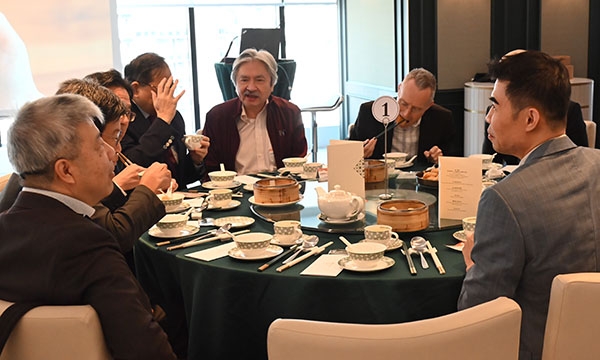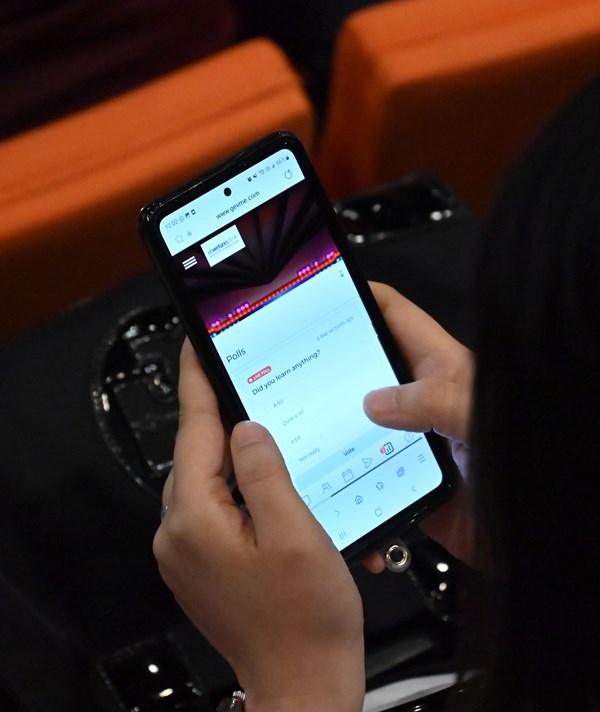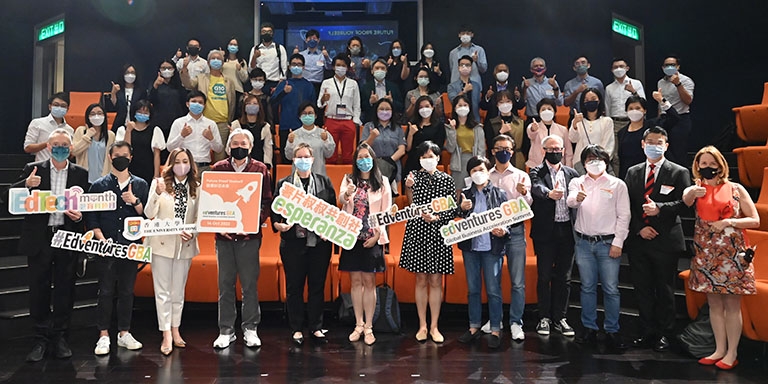Many people regard modern universities, with their four-year degree courses followed by mortarboard-clad graduations, as almost as quaint and outdated as the mortarboard itself (it was derived from the headgear mediaeval cathedral builders used to carry mortar up to the towers they were creating).
During the information age, the knowledge and skills gained through education have a short shelf life, which is why continuous lifetime learning, augmenting skills picked up during employment, is widely regarded as the way forward.
Seeking to rework education to a format appropriate for the 21st century, Hong Kong-based organisation Esperanza is seeking to upskill and reskill Hong Kong’s workforce.
The organisation rolled out the initiative at Esperanza’s Edventures Global Business Acceleration Summit in October. The event assembled more than 30 experts and innovators in education technology (edtech) from around the world for a one-day hybrid event, offering insights and best practices on how digital technologies can boost talent development and transform of Hong Kong into a digital economy. The summit was organised in partnership with the University of Hong Kong.
“Talent development is central to the sustainable development of every society. To address the acute talent shortages across different sectors, it is high time to kickstart a skill-building movement in Hong Kong as an integral part of the city’s post-COVID recovery strategy,” said John Tsang, Founder of Esperanza and former Financial Secretary of the Hong Kong Special Administrative Region.

New world of learning
Opening the summit, Dr Michael Fung, Executive Director, the Institute for the Future of Education (IFE), Tecnologico de Monterrey, laid out his vision for the future of learning.
“Shifting demographics, longevity, multiple careers, globalisation-localisation, digital transformation and the COVID-19 pandemic are disrupting the future of work. We need to create a new paradigm for education moving from front-loaded to lifelong learning, creating multiple pathways, integrating work and study, empowering individuals, and anticipating the skills required as we move from digital economy to green economy and care economy.”
Ben Nelson, Founder, Chairman and CEO of the Minerva Project and Chancellor of Minerva University, echoed Dr Fung. “Educational institutions largely teach us things that are not important for us to know and do so in a way that we don't actually remember,” he said.
Widely recognised as one of the most innovative universities in the world, Minerva develops students’ foundational and transferrable skills based on research on the science of learning and a data-driven approach. Mr Nelson believed that the future of education should go back to the basics, with the learner being able to apply what they have learned, no matter what they encounter.
Talent development trends
During panel discussions, Vu Tran, Co-Founder of Go 1, pointed out that “the sweet spot of digital learning is to empower the workforce, build their curiosity and provide accessible learning opportunities”. Go 1 is the largest curated e-learning platform in the world, offering more than 100,000 bite-sized courses.
How technology can make learning more meaningful was the theme of the “Deep Dive into EdTech: A Cross-Sector Approach” panel.
Rose Luckin, Professor of Learner Centred Design at the UCL Knowledge Lab in London, highlighted the value of artificial intelligence (AI) and machine learning in capturing and analysing student data to develop an evidence-informed approach to learning. Kingson Kwan from Ergon Global, a Hong Kong talent tech start-up, shared how his company leverages extended reality and blockchain to help organisations attract, retain and develop talents. Referring to the ethical implications of AI, Prof Luckin’s position was that “we need to ensure that what we do with it is driven by a sound pedagogical aim at every step”.
Another common thread of the summit was the importance of an ecosystem approach. Dr James Andrade, Senior Vice President and Head of Learning & Innovation of CapitaLand (Singapore), shared his company’s “Catapult” project, an executive co-learning centre. This project illustrates how the government, business, training institutes and students can work together to develop a learning ecosystem.
Working with different stakeholders is also a central pillar of the Korean government’s metaverse strategy, as described by Dr Min Kim, Vice President, Metaverse Promotion Department at the National IT Promotion Agency.

Edventures acceleration
Since 2002, Esperanza has organised an annual Edventures Global Business Acceleration Fellowship to introduce proven edtech solutions from around the world to Hong Kong and promote the city as a launchpad for global edtech start-ups seeking to expand their businesses in Asia. The theme for the Fellowship this year is “The Future of Adult Learning”.
At the summit, the four 2022 Fellows – from Denmark, Spain, Sweden and the United States – demonstrated how they use technology to address the pain points of educators, learners and employers.
Analytikus from the US personalises higher education by using AI solutions to provide a 360-degree view of a student’s executive functioning, social skills, emotional indicators and learning behaviours. Denmark’s Eduflow, meanwhile, addresses the boredom, lack of interactivity and feeling of isolation experienced in traditional e-learning with a simple but versatile learning management system.
From Sweden, Quizrr delivers digital training to help workers in global supply chains understand their labour rights and employers to be environmental, social and governance (ESG)-compliant using gamified, interactive and engaging content and taking a data-driven approach.
The fourth Fellow, Territorium from Spain, provides an AI-powered and competency-based learning, training and hiring platform for students and employers to map and analyse every learning experience into granular life competencies. It also recommends personalised courses, learning experiences and job pathways.
Related link
Esperanza
